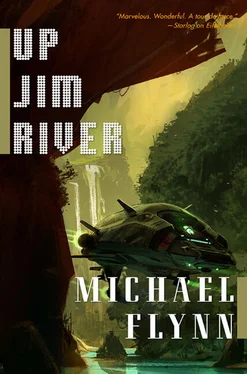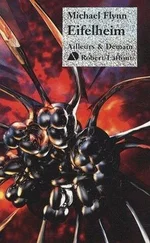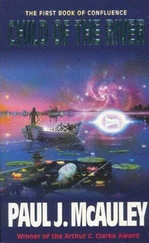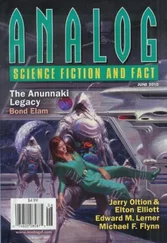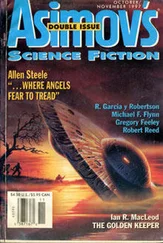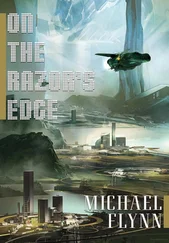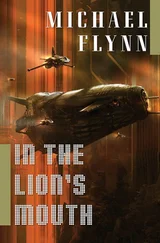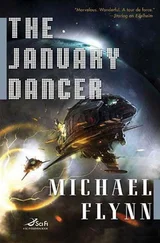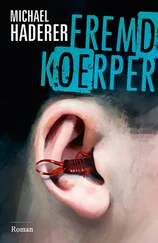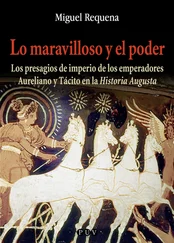The Terran Brotherhood was not outlawed within the League of the Periphery, as it was within the Confederation, but neither did it like to draw attention to itself. For one thing, Confederate agents were ofttimes about, and willing to freelance an assassination or two, and some Terrans were genuinely sympathetic to the Confederation, if for no better reason than that Olde Earth was their hostage. For another, League governments would sometimes decide that détente was the order of the day and move to suppress the Brotherhood to curry favor with the’ Feds.
Two others in the square had noticed the by-play and one of the water-women pursed her lips in disapproval. There was a third faction among the Terrans, and by no means a small one, that believed that what was lost was lost. They still believed in Terra—else they would cease to be Terrans at all—but they believed in the Ideal Terra, Terra-of-the-Dream, the “City-on-the-Hill” toward which one must always strive, and to which one would be transported after death. The idea of one day returning en masse and in the flesh to a physical Terra struck them as somehow sinful. To them, the Confederation was neither friend nor foe, but an irrelevancy.
The rat-faced man stood and walked toward the southern end of the square, where he ducked between a one-story wattle hut selling hand-phones and an open shed where a naked man with a welding mask was repairing a truck. After a decent interval, the Fudir followed him.
But as he turned into the alley behind the phone shop, rough arms grabbed him and a canvas hood was pulled down over his head.
The Silky Voice whimpered and Inner Child cried out in alarm. The Brute, for just a moment, seized control of the scarred man’s limbs and began to struggle; but the Fudir took them back and relaxed. If they had meant him harm, the darkness would have been permanent and not a mere hoodwink. They intended to take him somewhere and did not wish him to know where. He was still in grave danger; but the danger would come when the hoodwink was removed and he was in a comfortable room with smiling people.
“I long to see fruited plains of your home world,” the emperor said after Méarana had played a set of Dangchao songs from the Eastern Plains. “To ride like wind chasing Nolan’s Beasts with lasso and bolo. To drive herd to market in—how you say? Port Qis-i-nao? No, Port Kitch-e-ner.” He pronounced the alien sounds with great care. “Oh, life of Beastie boys, live free under stars.”
Sometimes Méarana wanted to slap the emperor of the Morning Dew. He confused song with life. You didn’t chase Nolan’s Beasts. That would run the meat off them. And life on the plains, under the stars, driving the herd to the knocking plants for shipment to Die Bold, was dirty, tiring, bone-breaking labor that stole sleep and health and even life itself. Beastie boys fared better in song than on the plains.
“Play again song of Dusty Shiv Sharma,” said the emperor over cups of Peacock’s Rose tea; and he warbled with a bad accent, “‘Best Beastie boy o’er alla High Plain.’”
Dusty Sharma had been a real “beast-puncher” a hundred and fifty metric years ago; but he had been called “Shiv” because he carried a hideout knife in his knee boot. Historians said he would not have been a pleasant man to meet, even when sober; but he had been so encrusted with legend that the real man was unrecognizable.
And so she played a geantraí, a jaunty tune that evoked what the Dangchao beast-punchers called the Out-in-back. Of “the splendor o’ the mountains, a-rearin’ toward the sky, cloud-shaker, avalanche maker, cool an’ dry an’ high.” Of such things as these at least there could be no musty historians’ doubts.
When they pulled the hoodwink from him, the Fudir blinked at the light and found himself facing seven men and women sitting on cushions behind a broad, low “kaffé” table, and not one smile to share among the lot of them. The Fudir was puzzled at first, since at every meeting of the Seven of Jehovah that he had ever attended there would be at least one or two that were “in the wind” due to misunderstandings with the Jehovan rectors. But then Terrans on Jehovah lived an edgier life than here, where a certain amount of segregation kept the Terrans more to themselves. He did not doubt that Jenlùshy Terrans ran their share of scrambles, but fewer of them seemed to intersect with the folk of the sheen.
The man in the center—pale-skinned, tow-haired, beak-nosed—was the one they called Bwana. He was bare-chested and wore buckskin pantaloons with fringed seams. His cushions were larger and done up in elaborate green, black, and red patterns. To the extent the Corner had a government and had a president, these were them and he was it.
“Ah, Bwana,” the Fudir said, bowing over his folded hands. “May I introduce my humble self.”
But the Bwana replied in the patois, so thick that it seemed almost the old Tantamiž lingua franca itself. Even the Fudir had to call upon his earwig to thin it out.
“Thou art known to us, o Fudir, as a man of promise. Thou promised Memsahb Jehovah, thou promised Fendy Die Bold, thou promised to give us back the Earth. Those wert thy words. This promise, he run jildy from corner to corner, in whispers. Hutt, hutt, ‘from Gatmander to the Lesser Hanse.’ But many years die since and…” He spread his hands in entreaty. “…no Earth.”
The Fudir marveled that, the farther from the promise the rumor had run, the more fervently it seemed to have been embraced. The Memsahb and the Fendy had not taken either his promise or his failure to heart. The key to success was low expectations.
“The tool I had hoped to use,” he suggested, “proved too dangerous to employ. Big dhik, sahbs. A dagger with two blades may be showed back on the one who holds it. So my hope was false all along, and none wept greater tears than I to learn so.”
“And there are more stories still,” Bwana continued. “That thou art an agent of our enemy, the Great Shittin, the Confederation that oppresses Olde Earth. Deny this.”
“Bwana, I do not, save that that was past and no longer true. Many a Terran has worked for Those of Name— because they hold Olde Earth hostage. A man named Donovan ‘took their nickel’ long ago; and I was once that man. He passed on to them certain information regarding the League—and what do you or I owe the League? We are in it, but not of it—but never did he inform on the Brotherhood, or harm the interests of Terrans. And then, after a time, the Names put him to sleep, to be called upon as needed. And in that time he forgot them; though not they him.”
Donovan intervened then and prevented the Fudir from saying any more. The Fudir agreed that this was not for the ears of others, but resented Donovan’s high handedness. A bit of trust was not uncalled for. But Donovan laughed, for he had not lasted this long by over much trusting, even of himself.
To Bwana, it appeared as if the Fudir had choked for a moment. He drummed the table with his fingertips, looked left and right at his committee, gathered in their verdicts, bobbed his head side-to-side. Then he clapped his hands, twice.
“Bread and salt!” he cried out. “Bread and salt for our guest!”
The Fudir let out the breath he had been holding. Deep within, Inner Child wept for joy, while the Brute felt keen disappointment at the lost prospect of danger and combat. Donovan and the Sleuth were amused by their reaction, and the others grew angry. Relief, joy, disappointment, amusement, anger. Enzymes and hormones warred and the contending emotions sent a wave of dizziness through the scarred man that nearly overcame him. Bwana frowned and asked if he were ill, but the Fudir waved him off.
Читать дальше
